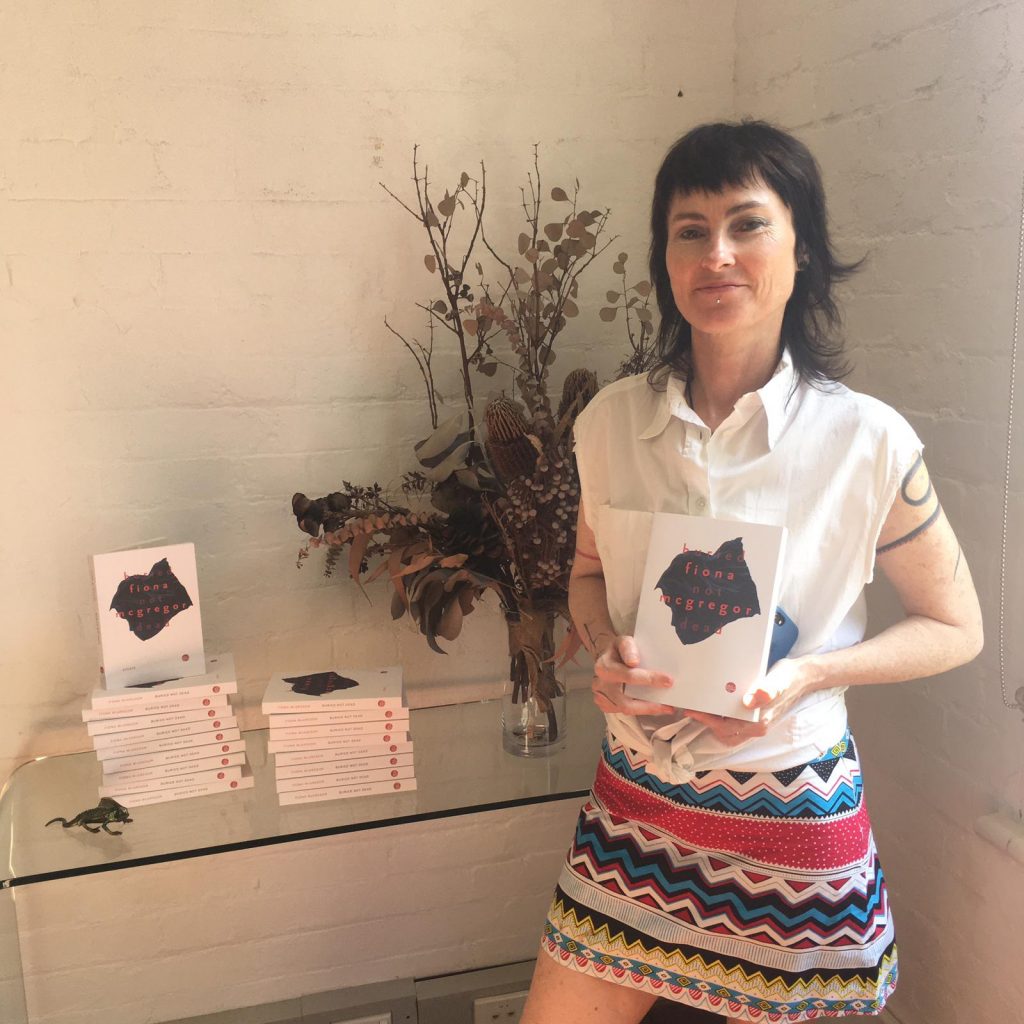Author: Alice Desmond
Giramondo seeks editor for new HEAT magazine
With the support of the Australia Council and Western Sydney University, Giramondo Publishing will recommence the publication of its renowned literary magazine HEAT in 2022, in a new series, and a new format.
To this end, we are looking to appoint a skilled and innovative editor to oversee the planning, commissioning and publishing processes of the new HEAT. Applicants should have university qualifications in literature or a related field, an advanced understanding of the contemporary literary scene, and experience in editing and publishing. They should be skilled in the relevant software, and have the ability to seek out and interact with contributors to and readers of the magazine. A sensitivity to the diverse styles and voices that constitute contemporary Australian and international writing, and to the strengths of emerging and established writers alike, are also essential characteristics. Intending applicants should be acquainted with the range of Giramondo’s publications, and with the two previous series of HEAT.
The HEAT editor will work alongside the Giramondo team at our Redfern office, and will be involved in our discussions about publishing schedules, design, printing, promotion and publicity, and funding. Working remotely is also an option. The position is a part time 0.6 appointment, from July 2021, and includes superannuation and annual leave. The salary is to be negotiated, in line with book industry standards.
Expressions of interest for the position of HEAT editor are to be submitted to applications@giramondopublishing.com by 5pm Monday 31 May. A one-page letter outlining your qualifications for the position should be accompanied by a CV which lists two referees. Please include these in a single file, with your name as the file name.
No Document launch events in Sydney and Melbourne
Please join us to launch Anwen Crawford’s book-length essay No Document at events in Sydney and Melbourne.
Melbourne
We’ll be celebrating the publication of No Document in Melbourne with an event at Dancehouse, co-hosted with Paperback Bookshop.
The book will be launched by writer and editor Elena Gomez, and Anwen will be in conversation with Dion Kagan.
Friday 14 May 2021, 6pm
Dancehouse, 150 Princes St, North Carlton
Free, RSVP essential
Sydney
Join us in launching No Document at Gleebooks, with readings by Emma Davidson, Vanessa Berry, Tim Roxburgh and Anwen Crawford.
Sunday 23 May 2021, 2:30 for 3:00 pm
Gleebooks, 49 Glebe Point Road, Glebe
Free, RSVP essential
Alice Whitmore wins the NSW Premier’s Prize for her translation of Imminence
Congratulations to Alice Whitmore, whose translation from Spanish of Imminence by Mariana Dimópulos is the joint winner of the 2021 NSW Premier’s Translation Prize. Imminence is the second novel by Dimópulos that Alice Whitmore has translated, following Giramondo’s 2017 publication of All My Goodbyes.
Watch Alice’s acceptance speech and read the judges comments below:
This beautifully conceived and crafted novel makes time stand still, as a new mother is filled with an absence of feeling for her baby. Taking place over an evening and a lifetime, the narrative unfolds in circular, spiralling scenes and meditations without ever losing its focus. The fragmentation of singular moments builds to a strangely satisfying ending. This work pulls readers into a slow burn treatment of trauma that is entirely present but also part of a complex psychology inflected by all that has come before.
Elegant and precise, this work is subtle in its intrigue, offering readers the freedom to weave their own conclusions as they retrace the woman’s life over 20 years: her lovers and friendships, a country cousin, mathematical formulae, deserts. Through a dexterous mix of dreamlike, real and delusional emotions and atmospheres, this fluent translation superbly conveys the peculiar and economic use of the writer’s language and style.
Imminence opens up its characters’ lives like complex clockwork, taking us into parts usually concealed to wonder at the deeper philosophical mysteries of time, truth, perception and one’s struggle to know others. The translation reads flawlessly in its rendition of the lyrical strangeness, detachment and beauty of the author’s compelling voice and vision.
Judges’s report
Alice Whitmore is a writer and literary translator living on Gunditjmara country. Her translations from Spanish to English include Mariana Dimópulos’s All My Goodbyes and Imminence, Guillermo Fadanelli’s See You at Breakfast?, and Xhevdet Bajraj’s Collected Poems. She is the translations editor at Cordite Poetry Review and an associate editor at Giramondo.
View the full list of winners at the State Library of NSW website and watch the full announcement on the SLNSW Youtube channel.
Giramondo designers shortlisted for Australian Book Design Awards
The shortlisting of our designer Jenny Grigg, for Beverley Farmer’s A Body of Water, and illustrator Ben Juers for Rawah Arja’s The F Team I take as recognition of the important role design plays in the production of Giramondo’s books. Both Jenny and her predecessor Harry Williamson, who did much to establish Giramondo’s reputation as a literary publisher, have been honoured as members of the Design Institute of Australia Hall of Fame. I have always felt that literary quality demands quality in design as its partner.
Jenny’s design for A Body of Water is a distinctively contemporary homage to Henri Matisse, whose painting Vase with red fish plays an important role in a short story embedded in the mosaic which has made Farmer’s work a classic of Australian literature. At the same time, it expands the resonances of Farmer’s title, A Body of Water.
Ben’s cartoon-like representation of the clash of young football titans on the cover of The F Team captures the combination of energy, social tension and comedy though which Rawah’s novel has expanded the range of Young Adult fiction, just as it makes its own dynamic contribution to the cover-design possibilities for this popular genre.
— Ivor Indyk
See more of Jenny’s work at jennygrigg.com.
Ben is on instagram @benjuers.
No Document – a playlist and liner notes
Anwen Crawford presents an essay in the form of liner notes about the making of No Document.
SIDE A
Mission of Burma – Mica, from Vs., 1982
Well y’know I nearly called the book Mica, because of my long preoccupation with this song’s ability to disassemble itself from the inside, as if the thing were always in the midst of becoming something else. Starting again. One of the best gigs I’ve ever seen in my life was about twenty years ago, this short-lived band called The Unicorns (right?), and at the end they started taking apart their equipment as they were playing, passing bits of the drum kit and the mic stands out into the audience. That’s how all gigs should end (or begin). Let’s democratise the means of production. Starting again.
Tropical Fuck Storm – Rubber Bullies, from A Laughing Death in Meatspace, 2018
The course of history is never pre-determined, but if I am testing a thesis in No Document then it’s the one voiced here: Certain pasts want certain futures / Certain futures, certain pasts. The arrangement of this song is repetitious, unremitting; it’s about causality – what it takes away – where Mica is about improvising new realities (I think). Is anything still possible?
Nina Simone – Pirate Jenny (live), from Nina Simone in Concert, 1964
As exacting and as merciless an act of class vengeance as has ever been delivered onstage. The show is over. The audience get up to leave their seats: time to collect their coats and go home. They turn around. No more coats and no more home.
Silver Mt. Zion – Mountains Made of Steam, from Horses in the Sky, 2005
This kind of folk-punk, post-rock thing that was floating around in the early 2000s got on some people’s nerves for the same reasons I love(d) it: a stubborn naivety of spirit and tone, the refusal to stop asking the question of why the world is as it is, and asking it with the resources to hand, i.e. your battered guitar amp and a ragged group of voices. This is their busted future / And this is our dream / Which one do you believe in?
Broadcast – You and Me In Time, from Tender Buttons, 2005
Broadcast’s vocalist, Trish Keenan, died suddenly in early 2011, only a few weeks after the death of my friend for whom No Document is written. I’d seen them play live just before he died; they too were a duo.
The Ink Spots – I Can’t Stand Losing You, 1943
For years now I’ve played a game in my head: is this a break-up song or an elegy?
Suede – The Wild Ones, from Dog Man Star, 1994
All great Suede songs – and this is probably the greatest – are about the drama of being young. And though The Wild Ones is probably addressed to a lover, I think its majesty encompasses the love we have for our friends when we’re young enough to rescue each other, wreck each other. And oh, if you stay / We’ll fly from disguised suburban graves. Well, amen.
Dinah Washington – This Bitter Earth, 1960
This song, on the other hand, is about no longer being young. Among other things.
Diamanda Galás – Let My People Go (live), from Plague Mass, 1991
Performed in the Cathedral of St John the Divine, New York, at the height of the AIDS epidemic in that city, Plague Mass by Diamanda Galás was (and is) an act of radical mourning. Her work as a singer and musician has been dedicated to the politics and rituals of grief: who grieves, who is grieved, how we might grieve together. Galás warns – this is news from below – that those whose grief has been occasioned by the state have no obligation to forgive.
SIDE B
Pet Shop Boys – Being Boring, from Behaviour, 1990
From one elegy to another, very different in tone but no less moving to me. This song wears its grief lightly. My friend V once described Neil Tennant as possessing ‘a teardrop voice’, which is exactly right: even when he’s arch (which is most of the time) he’s also sad. Being Boring can make me cry and there are few songs of which that’s true. Also – and I’m gonna let you in on a secret here – part of the reason I was determined to get Pet Shop Boys into my book was in order to impress my friend Shaun Prescott, who once wrote a great zine about them. I hope you’re duly impressed, Shaun.
Life Without Buildings – The Leanover, from Any Other City, 2001
It remains one of my minor but lasting regrets that I passed up the chance of seeing Life Without Buildings, a band of former art school students, at the Annandale Hotel, when I was an art school student. ‘They’ll be back’, I thought. Reader: they never came back. There was a season around this time, this year, when I had bronchitis – contracted, I believe, during too many winter nights spent outside spray-painting – and I lay in bed for what felt like months, but was probably only weeks, listening to this record and contemplating the floorboards.
The Clientele – Losing Haringey, from Strange Geometry, 2005
When I look back at this there’s nothing to grasp, no starting point. I was inside an underexposed photo from 1982 but I was also sitting on a bench in Haringey.
Marvin Gaye and Tammi Terrell – Ain’t No Mountain High Enough, 1967
There’s a specific kind of intimacy generated by collaboration. Were they partners? No. Were they partners? Yes. I tend to assume from this recording that, among other things, Tammi Terrell and Marvin Gaye shared a similar sense of humour: it’s their timing, their exuberance, the bounce of this song, though their parts – this was their first duet – were recorded in separate sessions. Tammi Terrell died at age 24, of brain cancer.
Stay – Rihanna feat. Mikky Ekko, from Unapologetic, 2012
My friend for whom No Document is written was, at heart, a not-so-secret sentimentalist (as I am), and had he been alive when this song was released, I like to imagine that we would have spent many happy hours singing along with it, badly, in his car.
I Found a Reason – Cat Power, from The Covers Record, 2000
This one I don’t have to imagine: we used to sing along to Cat Power all the time.
Limerence – Yves Tumour, from the compilation Mono Non Aware, 2017
VHS / mixtapes / colour snapshots /
Your voicemail greeting outlasted you
New Grass – Talk Talk, from Laughing Stock, 1991
A long time ago I learnt that the secondary and largely forgotten meaning of the word aftermath is ‘new grass’: that which grows after the harvest. The singer of this song has passed through to the other side of an event, but I don’t know what that event is; none of the words are discernible to me, and I’m glad of that. The song is a silhouette, not a testimony.
Who Knows Where the Time Goes – Nina Simone (live), from Black Gold, 1970
And above our heads pass birds, casting their shadows.
Giramondo authors at the Sydney Writers’ Festival
Several Giramondo authors will feature in the 2021 Sydney Writers’ Festival, which runs from 26 April to 2 May.
Anwen Crawford will be in conversation with Alison Croggon on 29 April and join a panel on criticism and creative practice on 1 May.
Fiona Kelly McGregor will appear at the festival gala event, Within Reach, on 30 April, while Rawah Arja joins YA authors for Disaster Kids in Love on 1 May.
Yumna Kassab and Felicity Castagna are both participating in Words/Sounds, a performance featuring five writers and five electronica artists in Parramatta on 29 April.
US edition of Bruno Lloret’s Nancy published by Two Lines Press
Chilean author Bruno Lloret’s novel Nancy, translated from Spanish by Ellen Jones, is reaching new audiences with a US edition published this month by Two Lines Press.
Lloret’s book is distinguished by its remarkable visual qualities, most evident in the free-flowing use of X characters throughout the text – characters which might also suggest religion, erasure, death, disappearance – and in the use of photos, x-rays and other graphic material.
The X started, almost on its own, to gather other functions than rhythm – silences, white noise, gaps, breathing,‘as if the world depicted in the novel emerged from the many meanings of this ubiquitous sign.
Bruno Lloret on Nancy
Most of all, Nancy is propelled by the strength of its narrator’s voice – spare, tender, ironic, and marked by an incorrigible optimism against the tragic precariousness of her life. Crippled by cancer and abandoned by her family, she tells her story from childhood through to its final moments, amid the ecological and cultural devastation of the northern Chilean hinterland.
The new edition has been greeted with strong praise:
this extraordinary novel far transcends denunciation and the exercise in style, reaching a new, unexpected, dissident realism.
Alejandro Zambra
The novel heralds a vanguard in Chilean letters and, despite its local roots, belongs to a burgeoning international literature of shared crises.
Asymptote
Bleak, beautiful and incredibly powerful.
Kirkus
This visually striking fever dream is one worth braving.
Publishers Weekly
In celebration of the new edition the Center for the Art of Translation a hosting a virtual event with Bruno Lloret, translator Ellen Jones, and moderator Kathryn Scanlan in conversation on Friday 23 April at 10:30am Australian Eastern Time (22 April, 5:30pm Pacific Time). Register for free here.
And Ellen Jones interviewed Bruno Lloret for the Southwest Review:
Nancy places a lot of emphasis on adobe, as well as on other desert materials, mountains, walls, abandoned iron constructions, even sand. Those materials are repositories for voices, and so is Nancy’s body—it’s a kind of resonance box, like in a guitar. Her body is a record of the scenes she has lived and the words she has spoken, and in turn the book itself is a record of those words, contaminated with Xs like her body is contaminated with cancerous cells. And so the book explores the parallels between landscapes, bodies, and texts.
Nancy was published in Australia by Giramondo in March 2020 and is the sixth title in Giramondo’s Southern Latitudes series, focused on writers from the Southern Hemisphere. It is the first of Lloret’s works to be published in English.
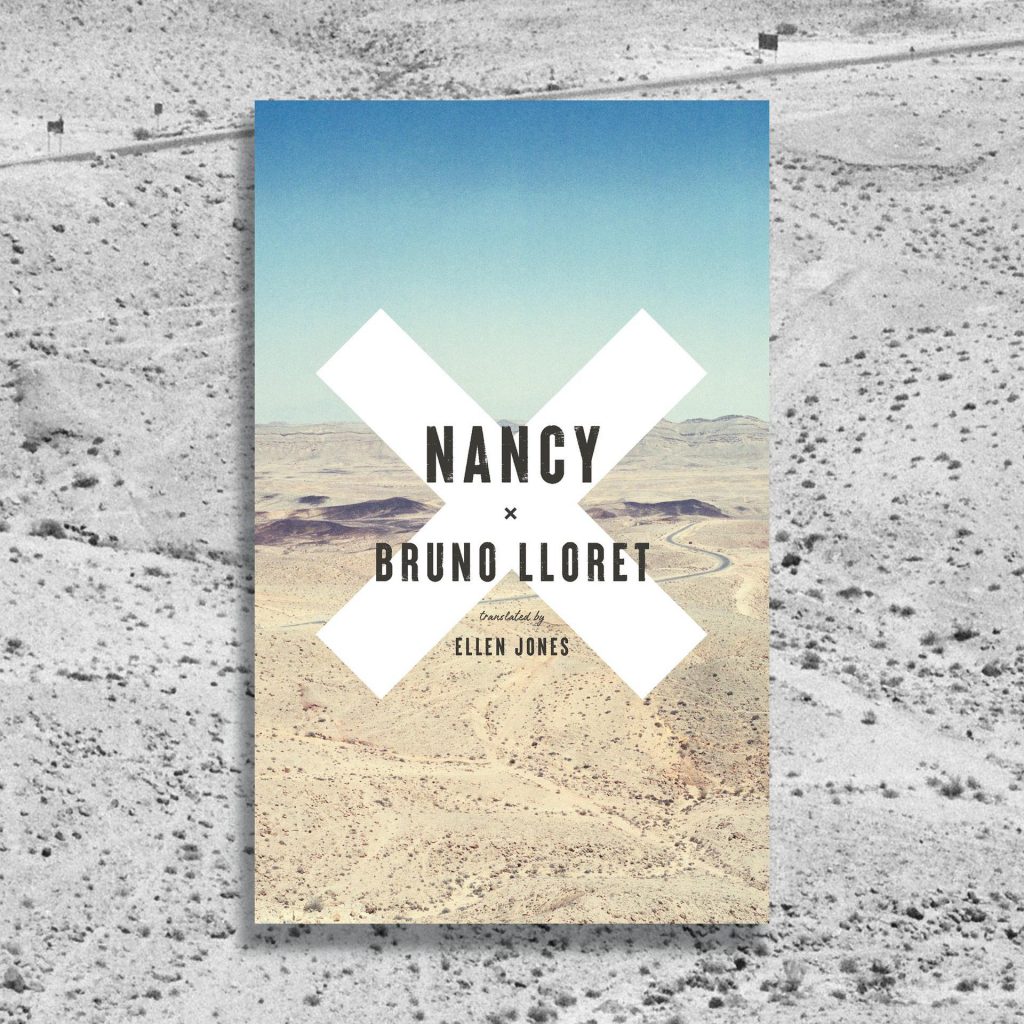
Anwen Crawford: a note on No Document
At the dead-end of Jones Street, which runs behind the distinctive tower building of the University of Technology, there once stood the shell of a former flour mill, hard up against the Western Distributor. I used to wander it. We used to. Rode out there with my friend, dragging Dulux tins and rollers on a jerry-rigged trailer behind our bicycles, through Sydney’s streets, to paint BIT BY BIT THE CITY BEWILDERS US onto one of the mill walls. Our message faced the road, so that passing drivers could read it. It lasted a few days.
The site of the mill is a luxury apartment block now, and my friend is dead. In the decade since his death I’ve often wondered how our we was brought into being. The friendship elegised in No Document is a we that existed at a time in Australia when the issue of who we were or are as Australians was heavily contested – when isn’t it? – by Tampa, by the offshore mandatory detention of asylum seekers, by the protests and resistance of those inside and outside detention centres, by Australia’s involvement in the War on Terror and the 2003 invasion of Iraq. I was heavily involved in student activism at this time, and attended many protests, some of which still haunt my dreams. So did my friends. We were young then and we are not now, those of us who live.
My hope is that this book serves as an elegy not only for one specific person but for those, including animals, who have been excluded from the social contract, from the we of belonging. Mourning is always political: the question of who can be grieved, who counts as having lived, is a contested one. I also think that the defining characteristic of an elegy is the labour it takes to make it. One attempts to honour the dead with one’s effort, attention and love.
In this sense, No Document is an incomplete record of its own becoming: incomplete because what’s left on the printed page are only the thoughts that I was equal to expressing, bit by bit. But the future – and the past – still contain possibilities that will exceed what I can say.
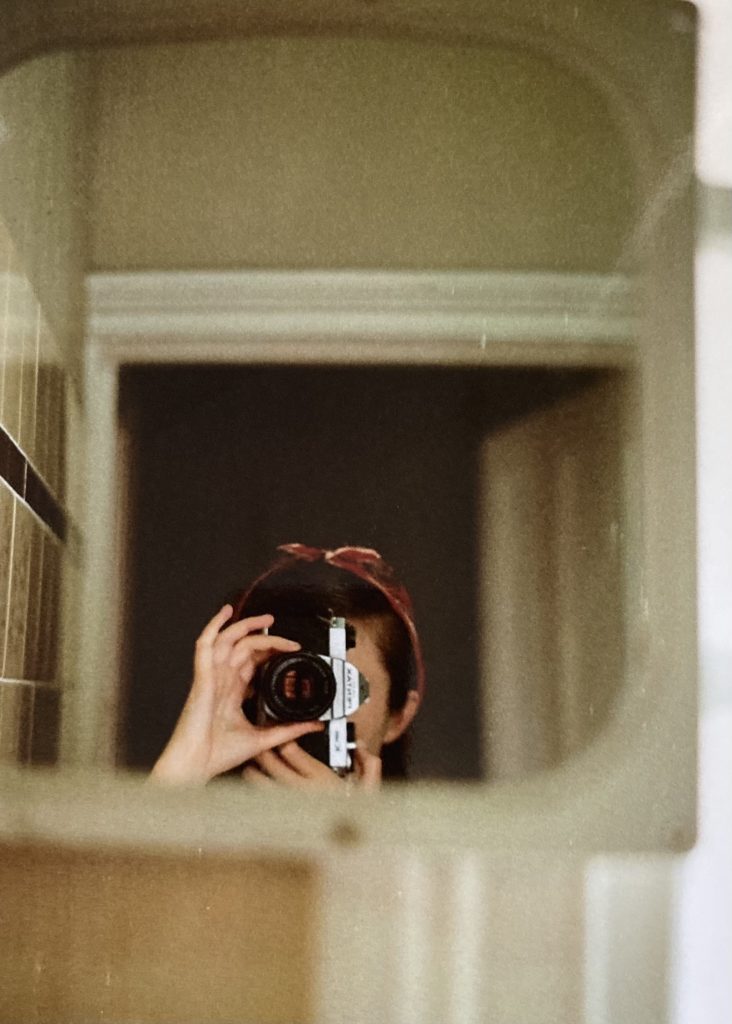
Mark Anthony Cayanan: a note on Unanimal, Counterfeit, Scurrilous
I was mainly preoccupied with two things when I was working on Unanimal, Counterfeit, Scurrilous. The first is more obvious: the collection plays out my obsession with Thomas Mann’s Death in Venice, which I was initially drawn to as an undergraduate because of how opaque its object of desire was (I didn’t fully realise back then that objects of desire in literature were almost invariably rendered as opaque entities) and how a plot marked by stasis – the entire novella is pretty much just a disastrous vacation – serves as a front for the implosive trajectory of the protagonist’s inner life. Throughout the process of engaging Mann’s narrative in a conversation, I was mindful that I was coming from a position that isn’t entirely compatible with the rarefied conditions of his queer tragedy.
The second is just as important: in the pre-pandemic era when I was working on the poems, the Philippines was, and continues to be, in the midst of a protracted campaign against illegal drugs. Initiated by a populist president, the campaign has been used to justify the flagrant violations of human rights committed with impunity by agents of the state, including extrajudicial killings of suspected drug users, peddlers, journalists, and political opponents of the government; the curtailment of press freedom; and the red-tagging of activists and representatives of Indigenous groups. Like many other artistic producers, I felt the compulsion to channel through my work the rage and despair I kept feeling in the face of such undeniable state-sponsored violence – but I honestly didn’t know how to participate in a socially necessary public discourse, when doing so also felt like being conscripted into a literary economy in which activism is transmuted into cultural capital. Moreover, I was an international student at the University of Adelaide; and I couldn’t quite shake off the suspicion that there was something mercenary about obtaining a PhD out of making the atrocities in my country legible to what was immediately a foreign audience (they were barely legible to me).
I dealt with this paralysis through subterfuge: one of my fundamental acts of creation was appropriative. Like a modernist or magpie, I stole conflicts and words, embedding passages into poems or actually creating drafts out of swathes I cobbled together from various sources. I imbricated texts detailing the political situation in the Philippines with Death in Venice, of course, as well as other materials whose presence enacted, albeit spectrally, the intersectionality of the subject-position from which the poems emerged. Instead of unambiguously deploying my work as political content, I attempted, through the plagiarism-adjacent methodology, to privilege the potentialities of the poem as a site of struggle while also demurring on it being a purveyor of radicalising motion. By nestling the social relationalities informing the collection within its climate of interiority, it is an anxious and queer performance of abeyance.
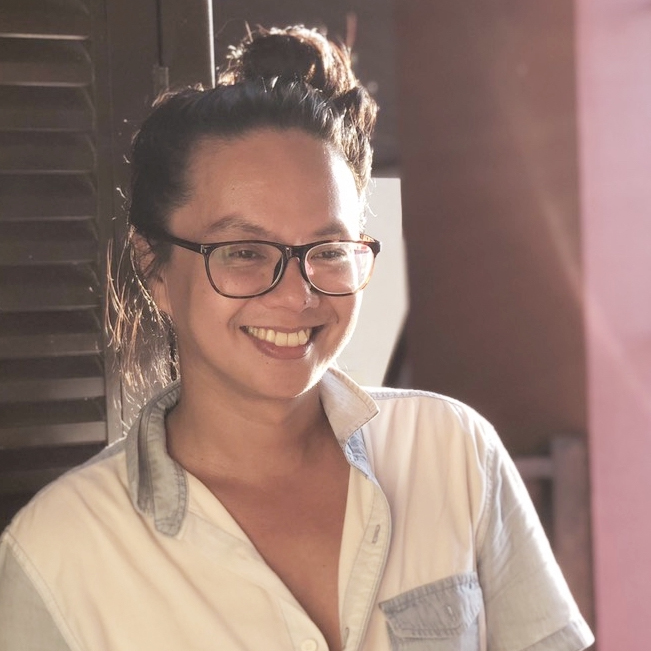
Nothing to See: Pip Adam in conversation with Laura Jean McKay
We’re glad to share the video of Pip Adam and Laura Jean McKay, author of the award-winning novel The Animals in That Country, in conversation about Nothing to See. Framing the novel as a meditation on care, they speak to themes of dividing and reforming, loss and loneliness, and embodied experiences of writing and reading.
I was thinking about the loneliness of not being seen…I really want to tell stories that I think have been silenced and I’m trying to find ways of telling these stories that somehow can be consensual with the reader
Pip Adam on Nothing to See
We’re grateful to Readings for hosting this online event, and for allowing us to share the recording.
Four Giramondo authors shortlisted for the NSW Premier’s Literary Awards
Congratulations to Rawah Arja, Tom Carment, Tiffany Tsao and Alice Whitmore, who have been shortlisted for the 2021 New South Wales Premier’s Literary Awards.
Rawah Arja’s novel The F Team is shortlisted in both the Ethel Turner Prize for Young People’s Literature and the Multicultural NSW Award.
Arja draws expertly on her personal experience to depict a community, setting and culture that sing from the pages. Tariq’s narration and the dialogue between his mates is a real treat: authentic, sometimes confronting and always hilarious. Readers will find themselves immersed in the Nader family home, where Arja weaves in many personal stories and experiences to demonstrate the multiplicity and complexity of ethnic narratives that are rarely given their due. Heartwarming and fun, this sweet debut captures the kind of Australia we all dream about.
Judges’ report, Ethel Turner Prize
Rawah Arja is a keen and astute observer of adolescent emotions and behaviours, a master of writing about young people’s vulnerabilities, social competencies and quirks with compassion and a good dose of irony. Connecting the personal with the political, Arja hilariously and affectionately sketches the realities of life for a group of teenage boys struggling — sometimes valiantly, sometimes obnoxiously — against the slings and arrows of growing up as they navigate systemic racism, schoolyard pranks, misunderstood neighbourhoods, and chaotic, loving family lives.
Judges’ report, Multicultural NSW Award
Tom Carment’s Womerah Lane: Lives and Landscapes is shortlisted for the Douglas Stewart Prize for Non-Fiction.
Womerah Lane brings together essays and paintings that capture the varied concerns of a painter and writer in constant dialogue with the world. Carment’s decades of practice as a plein air painter have shaped him as a writer; a careful attention to the particulars of place is the foundation of his literary style. At one moment we are with the author on his doorstep in Darlinghurst, chatting with the neighbours. The next we are with him as he hitchhikes on the Eyre peninsula. This humane and poetic book subtly achieves spectacular shifts in perspective and scale.
Judges’ report
Tiffany Tsao was shortlisted in the NSW Premier’s Translation Prize for her translation of Norman Erikson Pasaribu’s poetry collection Sergius Seeks Bacchus, which was produced in close collaboration with Pasaribu.
In this debut work, Pasaribu claims his place as an exciting new voice in Indonesian literature, one that is tender, tragicomic and irreverently imaginative as it draws readers into the multi-minoritised experiences of the author’s queer community and Christian Bataknese family. Intense moments of love, happiness, desire and community with people, nature or ideas are placed in almost casual conversation with equally intense experiences of confusion, persecution, rejection and loss.
With compassion and humour, Pasaribu’s poems make present and visible the diverse historical, cultural and lived complexities that undergird Indonesia’s dominant religious, cultural and gender norms. Among others, we meet two young men furtively pashing in an underground carpark, an alien spaceship heralding endless rain and the feverish invention of ‘helmbrellas’, and devout fourth-century Roman martyrs and lovers, Sergius and Bacchus, whose heaven is to ‘stroll the streets/ introducing one another to everyone you meet’. Cosmopolitan and moving, this translation demonstrates a fantastic ear for register and rhythm.
Judges’ report
Alice Whitmore was also shortlisted for the Translation Prize, for her translation of Imminence by Mariana Dimópulos.
This beautifully conceived and crafted novel makes time stand still, as a new mother is filled with an absence of feeling for her baby. Taking place over an evening and a lifetime, the narrative unfolds in circular, spiralling scenes and meditations without ever losing its focus. The fragmentation of singular moments builds to a strangely satisfying ending. This work pulls readers into a slow burn treatment of trauma that is entirely present but also part of a complex psychology inflected by all that has come before.
Elegant and precise, this work is subtle in its intrigue, offering readers the freedom to weave their own conclusions as they retrace the woman’s life over 20 years: her lovers and friendships, a country cousin, mathematical formulae, deserts. Through a dexterous mix of dreamlike, real and delusional emotions and atmospheres, this fluent translation superbly conveys the peculiar and economic use of the writer’s language and style.
Judges’ report
Kristen Lang: Readings from Earth Dwellers
We are pleased to share readings by Kristen Lang of poems from Earth Dwellers, her new collection which was published by Giramondo this month.
With its immersion in powerful wilderness landscapes, Earth Dwellers challenges our human-centredness by embracing perspectives which set the intimate delicacy of life forms against time scales that go back millions of years.
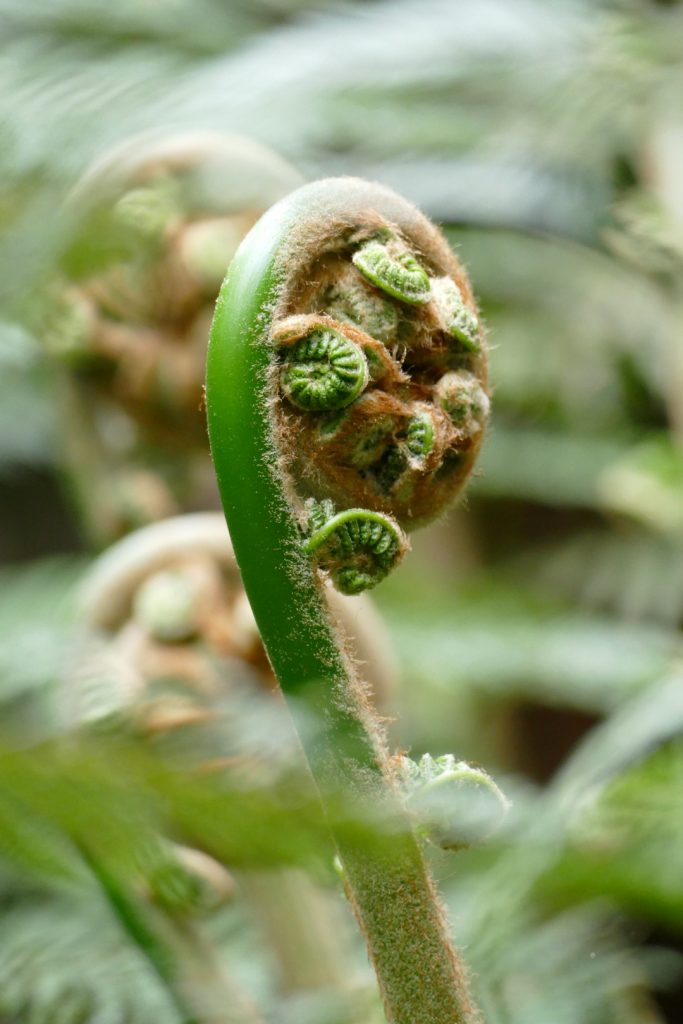
Online event: Pip Adam in conversation with Laura Jean Mackay
Please join us to celebrate the launch of Pip Adam’s novel Nothing to See at an online event hosted by Readings. Pip will be in conversation with Laura Jean McKay, author of the award-winning novel The Animals in That Country.
Thursday 18 March, 6:30 pm
This event is online via Zoom. Tickets are $5 per person, which is redeemable off purchase of the book when purchasing in store or online from Readings.
Register at the Readings website.
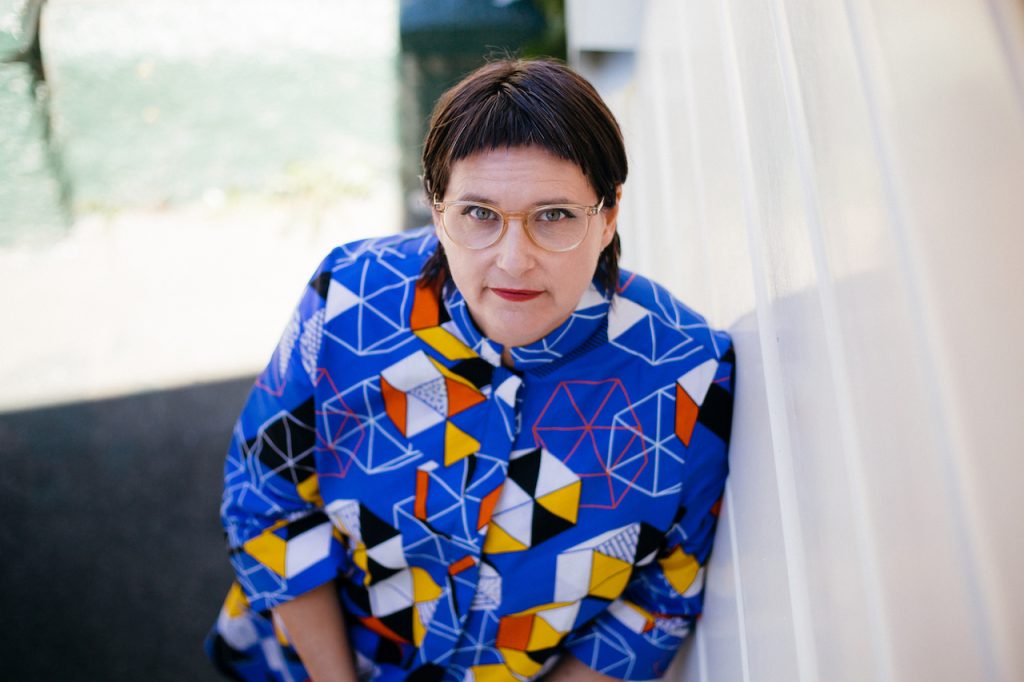
Kristen Lang: a note on Earth Dwellers
The notion that humans might do well to view themselves as embedded or entangled in the rhythms of the Earth’s ecosystems is obviously not new, likely older than language. Even amid the oppositional tendencies of industrialised cultures, intimate and immediate relatedness to the places we inhabit continues to be given voice, strained though the effort may have become. There’s recognition that weakened connectivity to the natural world might be something to lament, something to remedy. In truth the need is urgent: climate change, habitat loss, human-induced species loss (that huge thing we make so little of – two words for our destruction not of a life but of an entire life form).
Ecological restoration is thankfully a growing, global occupation, populated by soil ecologists, entomologists (we need more of them), meteorologists, ornithologists, Indigenous elders, farmers, volunteers…and why not poets? This is, after all, a cultural as well as a physical undertaking, one that reaffirms, shouts out about, the all-life, deep-time context of human history. Humans may have emerged only recently but we are of and joined to the planet’s physical and biological matrix. I would love to write for a culture within which these relationships truly matter.
Earth Dwellers is my way of saying they do matter. They matter to me. If we are lucky, we will enter an era where they matter on every level, each breath drawn with an awareness of and a responsibility for this more-than-human world. Right now, it seems either too easy or too necessary to forget that what we take, every bite, every bauble, every city space, every water drop, comes from somewhere real. It’s what we need to solve – how to take without collapsing ecosystems, without the history of the planet meaning nothing at all.
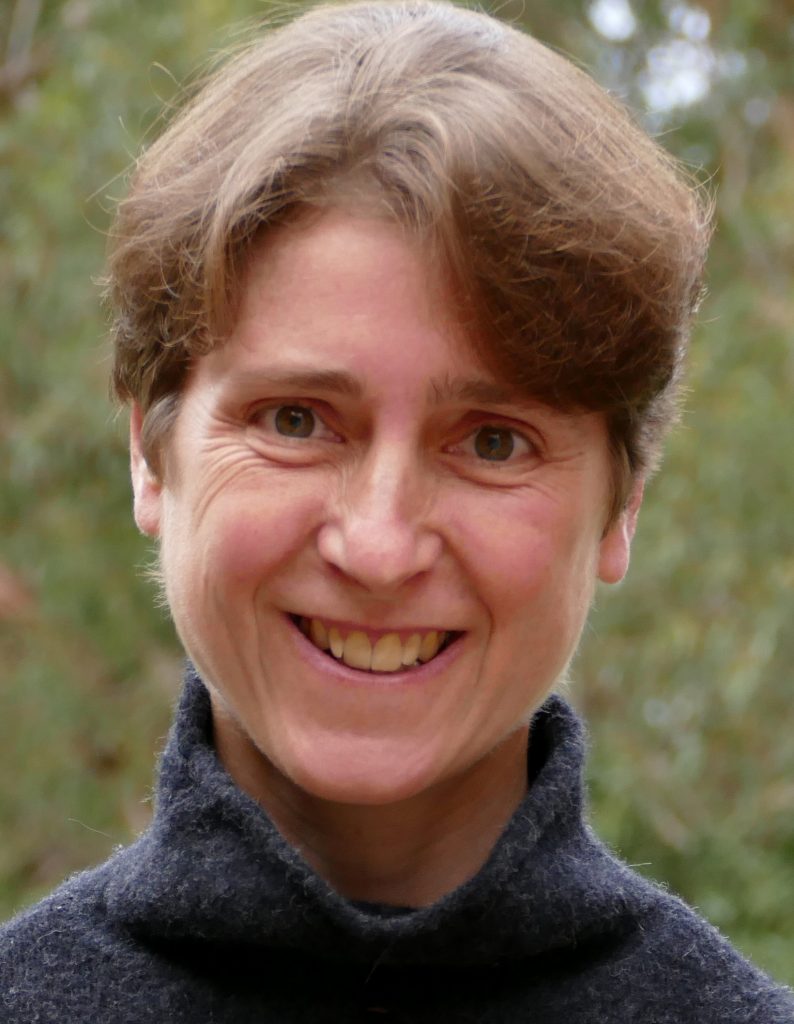
Pip Adam: a note on Nothing to See
For a long time, this book was saved in a file called ‘care’ and I think I’ll always understand it in that context. The complicated act of caring for ourselves, our closest and those far away – the gone, the yet to come, the unknown to us. The care that is visited on us; the ease and unease with which we receive it.
The first thing that came for this book was the image of two identical women. Years ago I read a Sweet Valley High book for the first time and there was a scene where one of the twins was looking at the other and she reflected on seeing herself in the twin and this really interested me – the idea that you could see yourself in three dimensions. Then I started thinking about the things we wilfully ignore in order to be able to keep going as ‘normal’ and this interested me too. The problems that come from there suddenly being two of you.
This inciting image: a pair of women, perfectly identical, hooked in an easy embrace navigating a completely mundane yet endlessly bewildering world remains.
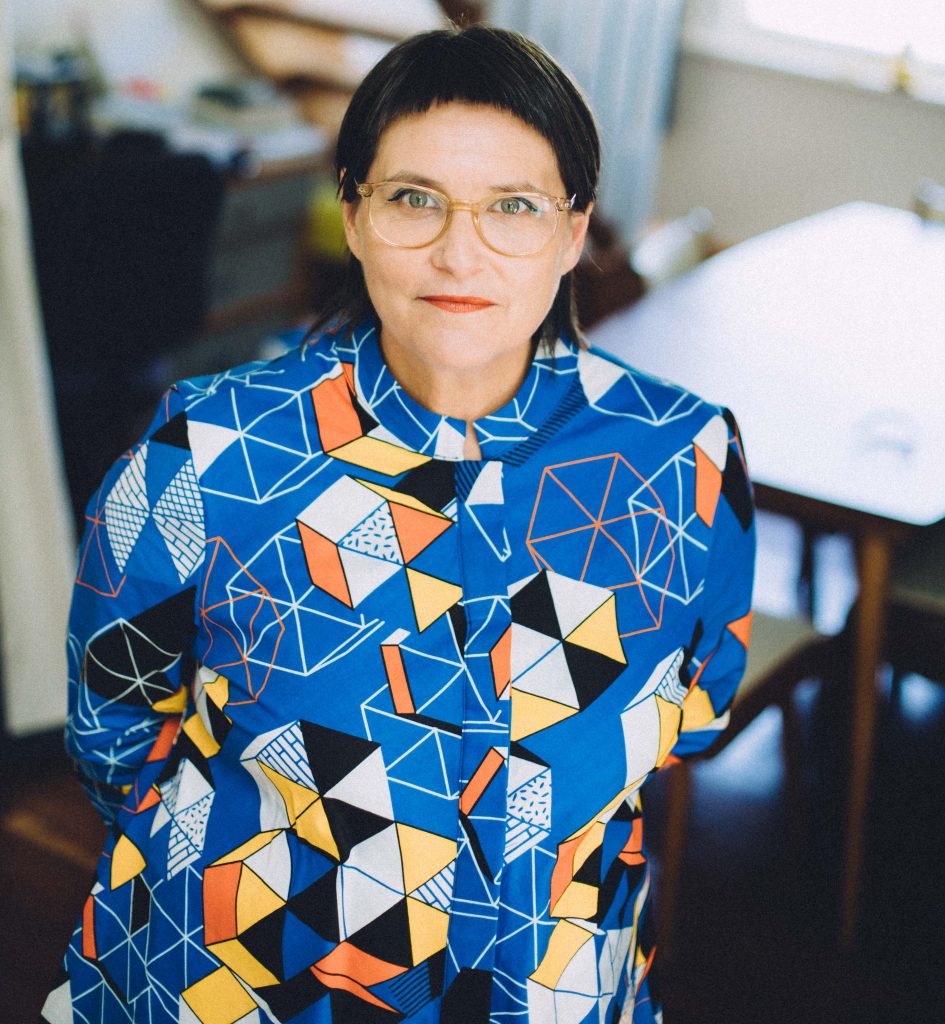
(Photo: Ebony Lamb)
Launch events for Fiona Kelly McGregor’s Buried Not Dead
Please join us to celebrate the publication of award-winning novelist and performance artist Fiona Kelly McGregor’s new book Buried Not Dead at a series of in-person and online events.
Book signing at The Bookshop Darlinghurst
As part of Shop Till U Drop at Oxtravaganza, Fiona Kelly McGregor will be signing copies of Buried Not Dead.
Saturday 27 February, 2:30 pm
The Bookshop Darlinghurst
207 Oxford Street, Darlinghurst, Sydney
Details on Facebook.
Fiona Kelly McGregor in conversation (online)
Our friends at Readings are hosting a conversation between Fiona Kelly McGregor and fellow author Sophie Cunningham as they discuss Buried Not Dead.
Wednesday 10 March, 8:00 pm
This event is online via Zoom. Tickets are $5 per person, which is redeemable off purchase of the book when purchasing in store or online from Readings.
Register at the Readings website.
Buried Not Dead Book Launch
We’re delighted to mark the launch of Buried Not Dead with a free in-person event hosted by Better Read Than Dead at the Cactus Bar on the rooftop of the Town Hall Hotel in Newtown.
Thursday 25 March, 6:30 pm – 8:00 pm
Town Hall Hotel – Cactus Bar (rooftop)
326 King St, Newtown NSW
RSVP is essential as numbers are limited: reserve a free ticket here.
